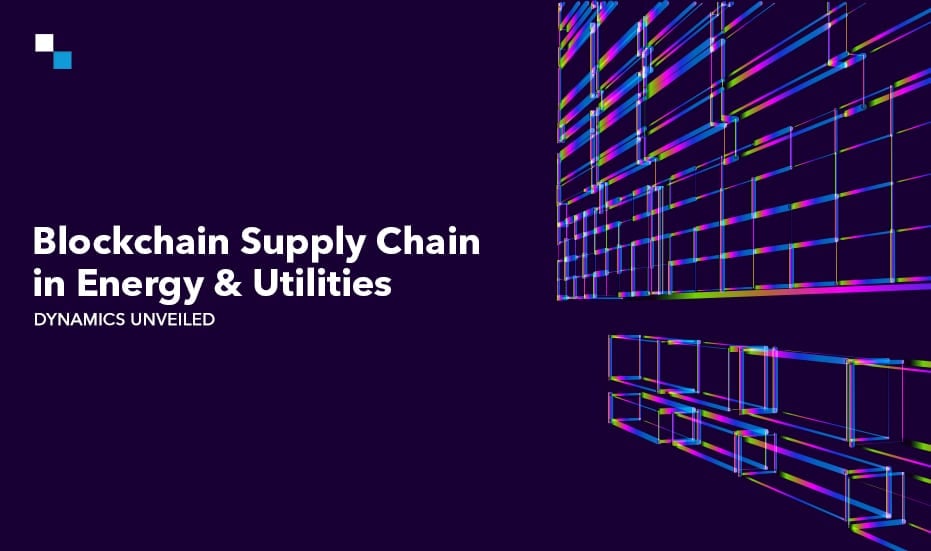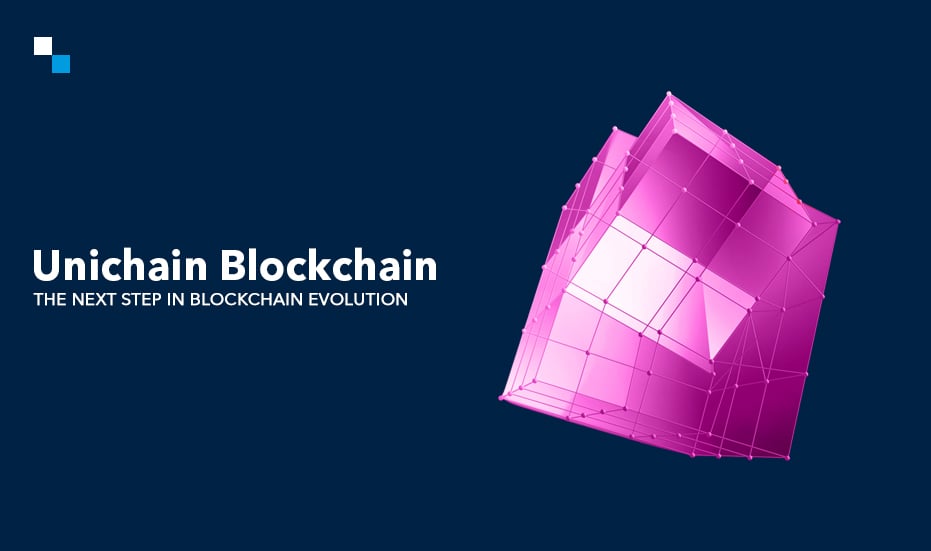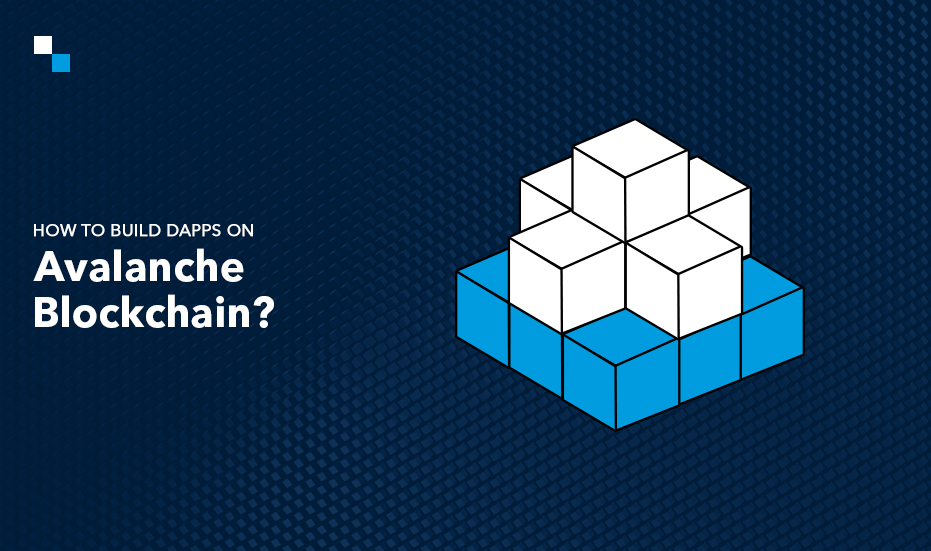
Future Trends in P2P Crypto Exchange Development
February 5, 2024
Privacy-Preserving Features of P2P Lending Software
February 5, 2024Over the past few years, multiple disruptions to the supply chain have affected the operations of most industries, and the energy and utility industry is no exception. This sector faces numerous challenges within its supply chain network even before the pandemic. From the lack of transparency to resource allocation woes, these challenges have somehow affected the industry to a great extent, necessitating the demand for a better solution. In such a case, blockchain supply chain development has emerged as a revolutionary approach to eliminate the supply chain inefficiencies of the energy and utilities sector.
Before we delve into how blockchain supply chain solutions are more than hype for the industry, let’s take a closer look at some popular facts highlighting the urgency of a better solution.
Understanding the Reality of Energy and Utilities Supply Chains
The following are some popular facts showcasing the ground-up reality of energy and utility supply chain-
- The cost of transformers has experienced a twofold increase. Not only this, but the typical delivery lead time has also tripled from what it was two years earlier, reaching 52 weeks in certain instances.
- Electric power companies are draining their inventories because they are constantly upgrading equipment. Getting replacements takes a longer time.
- Large companies have to incur costs amounting to millions of dollars for every hour of downtime during an outage. As per the Department of Energy report, outages cost the U.S. economy $150 billion annually.
- 72 percent of water utilities face difficulties while obtaining pipes or other infrastructure components.
The heavy reliance on an aging supply chain infrastructure leads energy and utility clients to suffer from costly deals. However, with the right tools, tactics, collaborations, and actions, it won’t work this way.
Pain Points in the Existing Energy & Utility Supply Chain
1. Resource Allocation Woes
The traditional supply chain systems of the energy sector lack transparency. It can’t provide the real-time tracking and traceability benefits that often contribute to inefficiencies. Companies often struggle with resource allocation due to fluctuating demands, unforeseen disruptions, and no visibility into resource movements, leading to suboptimal allocation and increased waste.
2. Grid Management Complexities
Conventional grid management systems in the utility industry are centralized. A single point of failure can lead to outages and disruptions. It is important to rely on a resilient and decentralized approach to manage the complexities of the energy grid, balance the load, and ensure a consistent power supply.
3. Manual Processes and Delays
The traditional supply chain system of energy and utility involves manual processes and paperwork that causes delays, and errors and further increases operational costs. The heavy reliance on outdated systems hampers the industry’s ability to adapt as per the market trends, leading to missed opportunities and reduced efficiency.
4. Lack of Transparency
Transparency is one of the crucial factors to consider to foster trust among stakeholders and ensure a smooth operation of the supply chain. The traditional supply chain system in the energy and utility sector lacks transparency which results in disputes, inefficiencies, and fraud. No visibility also makes it difficult to maintain accountability throughout the ecosystem.
5. Security Concerns
The increasing digitization of the energy and utility supply chain raises security concerns as this sector deals with sensitive information that is often targeted for cyber threats. The conventional supply chain systems are not robust enough to tackle evolving cyber threats, posing a risk to data integrity.

Blockchain Supply Chain Development: The Solution Powered by Trust
1. Real-time Tracking and Traceability
The decentralized ledger of blockchain offers a transparent and tamper-proof record of every transaction and movement performed within the supply chain network of energy and utility. This real-time tracking and traceability provided by blockchain supply chain solutions of energy resources throughout the entire supply chain aids in optimal resource allocation and reduces waste to a great extent.
2. Decentralized Grid Management
The decentralized nature of blockchain simplifies the grid management, making it more resilient. The information on the blockchain supply chain solutions is distributed across a network of nodes that reduces the risk of a single point of failure. This decentralized approach builds a more robust and resilient energy infrastructure, ensuring the continuous flow of the energy grid, even during cyber threats or natural disasters.
3. Transparency through Distributed Ledger
The supply chain transactions on the blockchain’s distributed ledger are accessible to all stakeholders within the network. Each participant can easily access the real-time data, which reduces the chances of fraud and disputes. The transparency benefits offered by blockchain supply chain solutions also fuel up trust among stakeholders and further build an accountable energy ecosystem. Hiring a reliable blockchain supply chain development expert would be a wise move to leverage the power of blockchain.
4. Smart Contracts for Automation
Smart contracts, a blockchain-based protocol that functions as digital contracts, automate and streamline processes within the energy and utility supply chain. These self-executing contracts on blockchain supply chain solutions are programmed to execute the action when predefined conditions are met. It eliminates the need for intermediaries to perform several tasks, ranging from procurement to billing. Concisely, blockchain supply chain development can help energy and utility industry players build a more automated and responsive supply chain.
5. Enhanced Security Measures
The cryptographic techniques and decentralized architecture of the blockchain supply chain solutions increase the security of the overall system. Each transaction on blockchain supply chain solutions is secure through cryptography techniques. The decentralization offered with blockchain supply chain development reduces the risk of a single point of failure and helps build a more resilient supply chain system.
Benefits for All: Stakeholder Value Creation
The benefits of blockchain supply chain development extend far beyond individual applications.
- Consumers: Transparent pricing and provenance, greater control over energy consumption, and active participation in new market opportunities add value to the consumer’s experience.
- Utilities: Improved efficiency in supply chain management, reduced fraud and errors, and enhanced grid management capabilities are a few benefits of blockchain supply chain development for utilities.
- Regulators: Increased transparency and traceability offered by blockchain supply chain solutions enable better monitoring and enforcement of regulations.
- Renewable Energy Providers: Improved traceability and verification of green credentials foster trust and attract investment from stakeholders or investors.
- The Environment: Increased adoption of renewable energy and optimized grid management contribute to a more sustainable energy future.
Conclusion
To conclude, blockchain holds immense potential to transform the supply chain ecosystem of the energy and utility industry. Companies across the globe can leverage the blockchain’s capabilities to build a secure, transparent, and efficient supply chain and accelerate the transition to a more sustainable energy future. If you’re looking for a blockchain supply chain development company to assist you in the journey of transformation and sustainability, Antier is a reliable partner. Our company has developed tailored blockchain supply chain solutions for the market players in the energy and utility industry. Our assistance can help you achieve your goals faster in a more efficient way.



